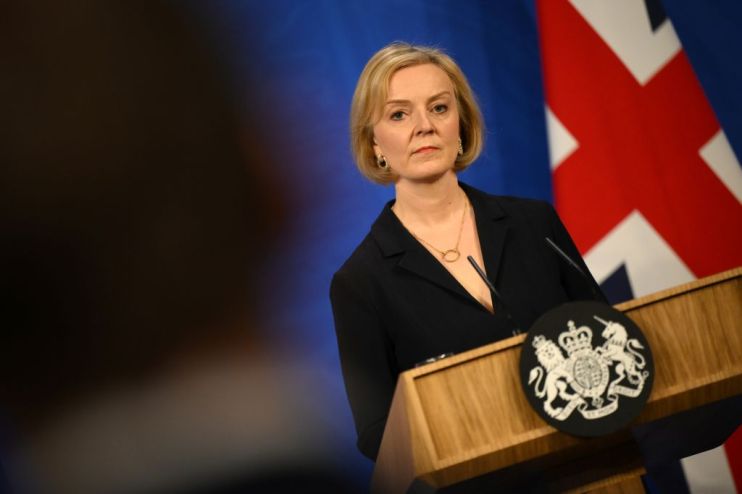Truss’s botched mini budget heaps pressure on company finances

Prime minister Liz Truss’s botched mini budget has heaped pressure on the finances of the UK’s largest companies, reveals new research out today.
Chief financial officers of FTSE 100 and 250 firms see borrowing as more costly than at any time since 2010, according to big four accountant Deloitte.
UK financial markets have been rocked by Truss and her former chancellor Kwasi Kwarteng’s £45bn tax cutting mini budget.
Rates on government debt surged, meaning companies have to offer a higher rate of return on their bonds to attract creditors.
The pound has also slid against the US dollar. A large proportion of the FTSE 100 is made up of exporters, who should receive a boost from a weaker pound.
However, the UK imports lots of materials, which have become costlier as a result of the currency depreciation, wiping out any demand gains.
The finance chiefs who participated in Deloitte’s survey “after the mini-Budget foresaw materially higher interest rates and were more likely to report elevated credit costs than those who responded before,” the firm said.
Inflation has surged to 9.9 per cent, a 40-year high, forcing the Bank of England to hike interest rates six times in a row, including two back-to-back 50 basis point moves, to 2.25 per cent.
Markets think the Bank could lift borrowing costs a full percentage point at its next meeting on 3 November to shore up confidence in the UK financial credibility.
Ian Stewart, chief economist at Deloitte, said: “A twelve-year period of easy credit conditions is drawing to an end. Corporates are seeing a reset in the cost and availability of credit.”
“Not since the credit crunch have CFOs rated debt – whether that’s bank borrowing or corporate bonds – as being less attractive as a source of finance for their businesses than they do today,” he added.
CFOs canvassed by Deloitte assigned on average a 78 per cent chance of the UK tipping into recession in the next year.